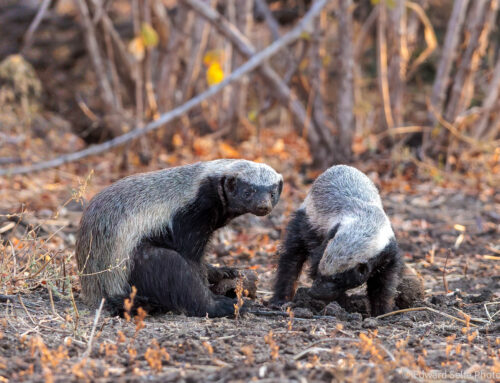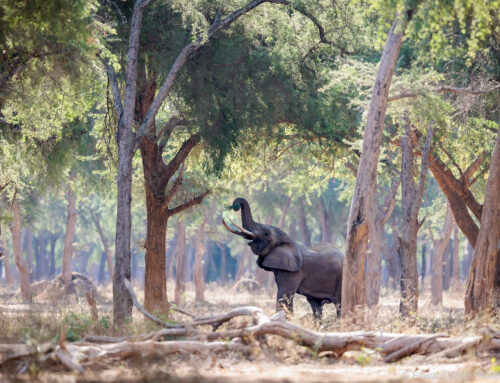Two repeat guests and two new, plus three superb National Parks and excellent camps to explore from. This was a trip that I had been looking forward to for a long time. We met in Lusaka and stayed overnight at the excellent Latitude 15 hotel before leaving early to travel to the Lower Zambezi National Park the following day. Before we even arrived at Anabezi Camp, we had seen more than 100 elephants and endless plains game. On this trip, the sightings came thick and fast right from the start. Below is a photo-based account of the trip. If you want to see more ‘behind the scenes’ you can catch up with my daily stories on Instagram. Go to my profile page and then click the ‘highlight’ circle labelled Safari Diary: Exclusive Pan-Zambia Jul 2023 (1).
I’ll split the safari into 3 sections, based on the areas where we stayed and add captions to illustrate the story. For more detail, check out the instagram stories as outlined above. Thanks so much for reading.
Anabezi Camp, Lower Zambezi National Park
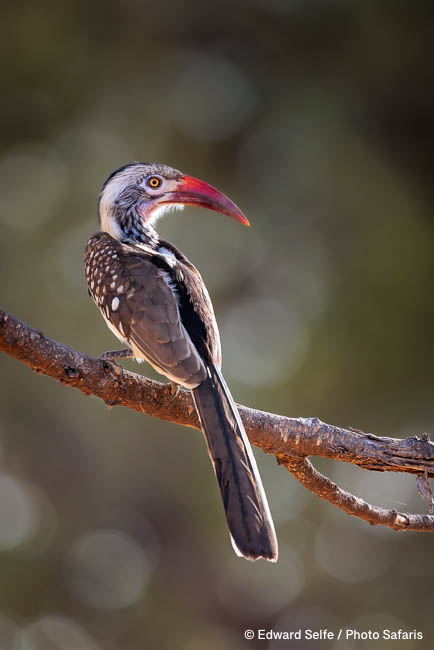
After a short briefing and lunch, we set out early. All my guests were skilled photographers and one of the items on our plan was to be more aware of backgrounds as a crucial element to photos. This red-billed hornbill was a good first subject to get cameras warmed up and discuss the impact that the dark background would have on the bird and the overall exposure.
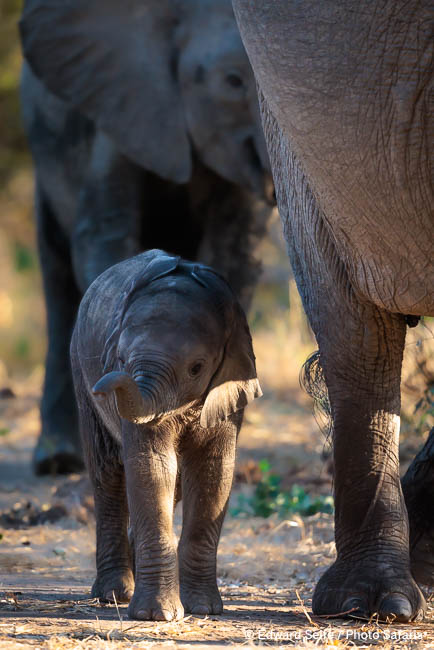
The light was still bright, and the herd kept the calf hidden, but this youngster was still wonderful to watch.
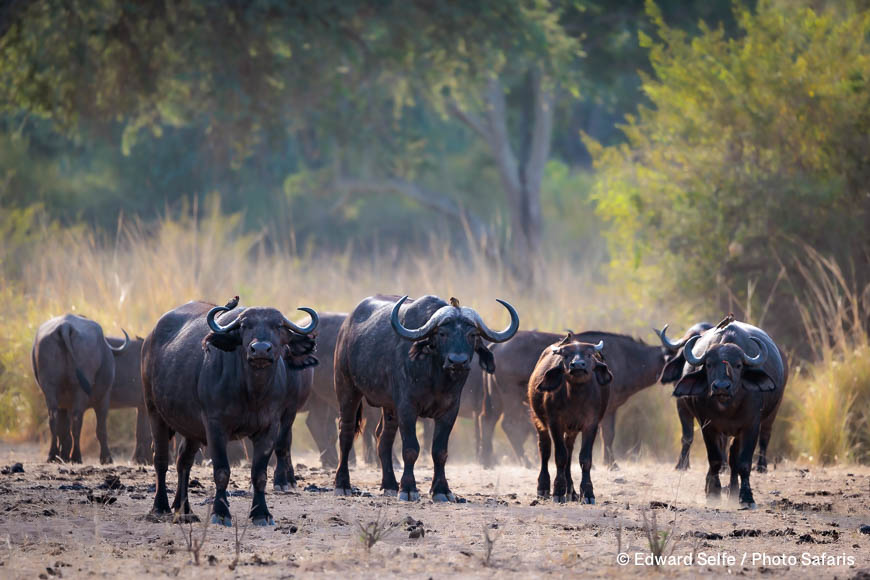
With limited water levels in the Lower Zambezi’s channels and lagoons, we found buffalo herds already congregating along the channels close to the river. The rains ended in February in this area (compared to high water in mid-April in the Luangwa) so the ecosystem is facing a much drier year than other parts of Zambia.
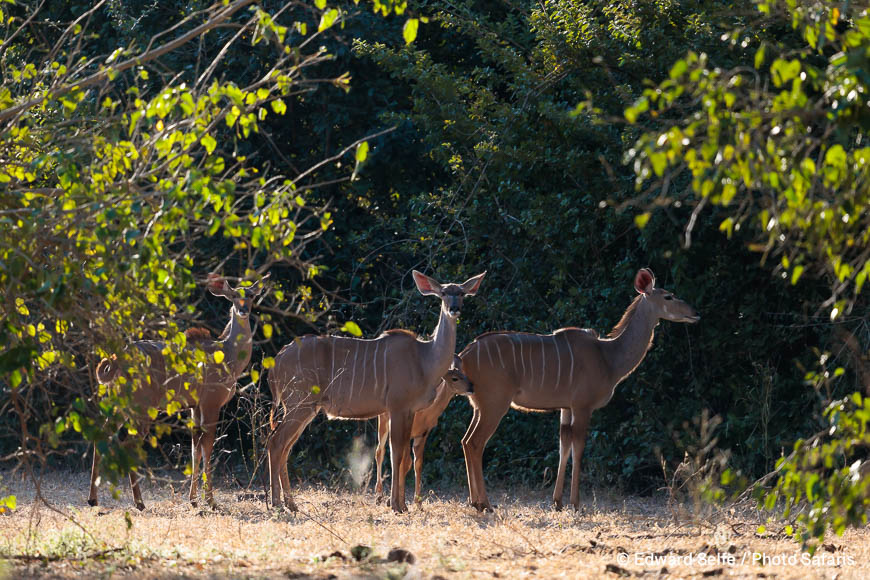
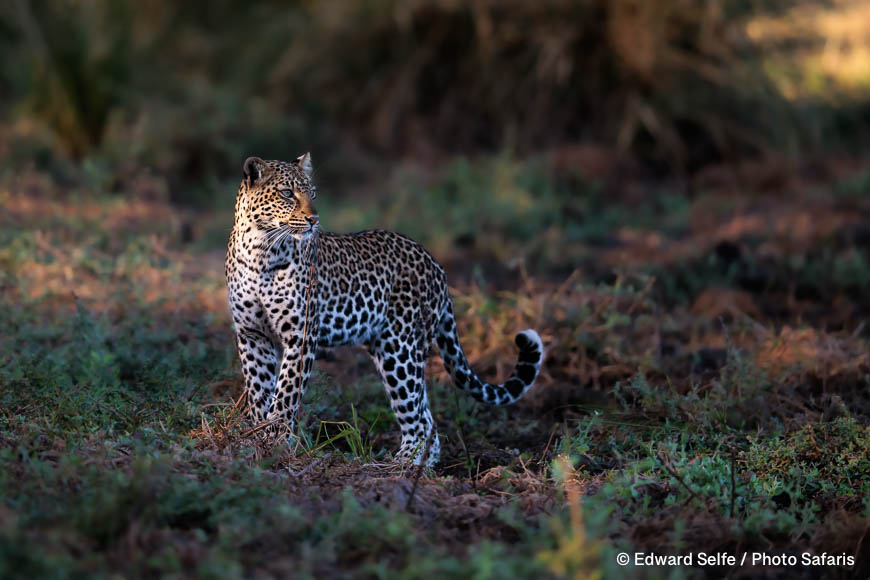
The leopards of Lower Zambezi are superb currently. A combination of the habitat (which is very open), the relatively small number of vehicles and the extremely relaxed leopards makes it possible to see several individuals almost every day. This youngster (known as Lady) lives near Anabezi and is one of a family of 3 who allow us to watch them living their lives. Very sadly their younger sibling, who was born earlier this year, was killed by an unknown male leopard the day before we arrived on this trip. Very sad for the mother and the family.
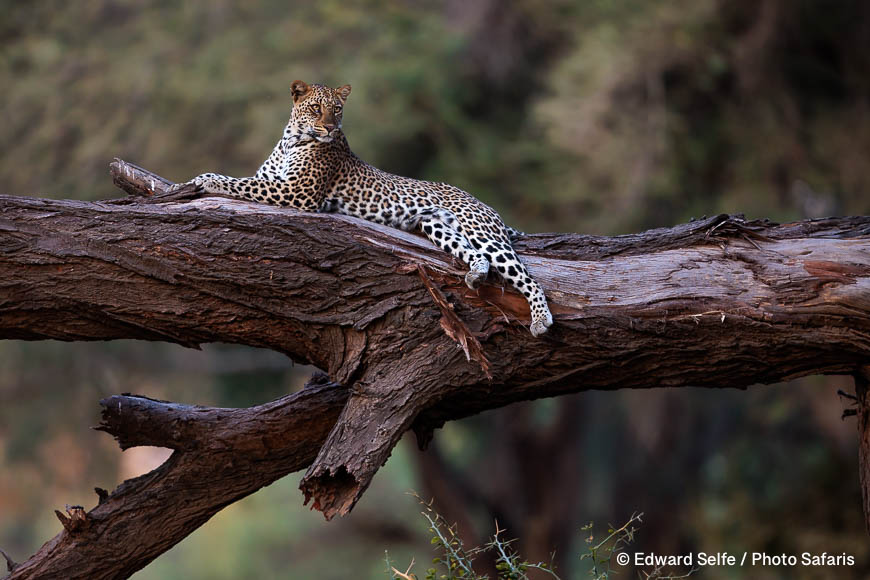
Lady’s sister, Scar (named for an eye injury caused by a porcupine quill when she was a cub) spent the afternoon resting on a large fallen tree in the middle of the floodplain, clear for all to see. Extraordinary and special behaviour.
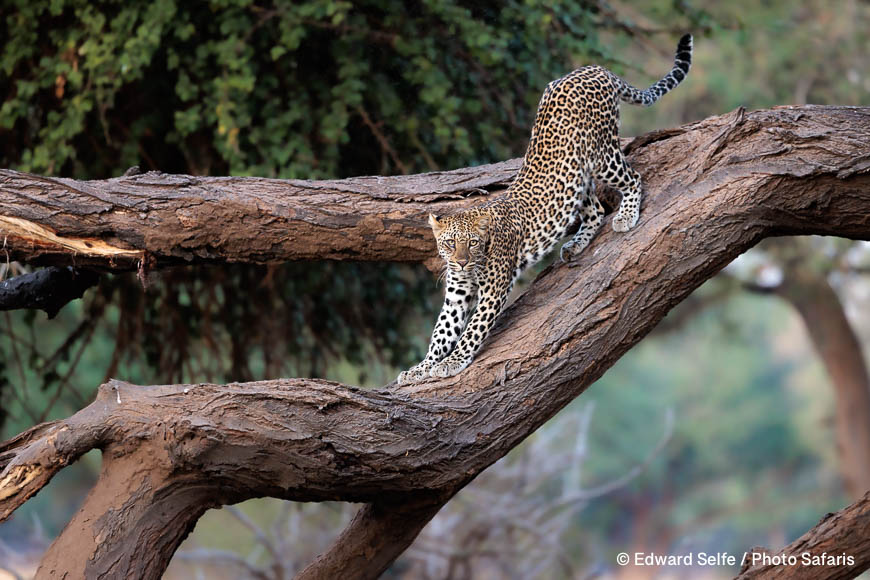
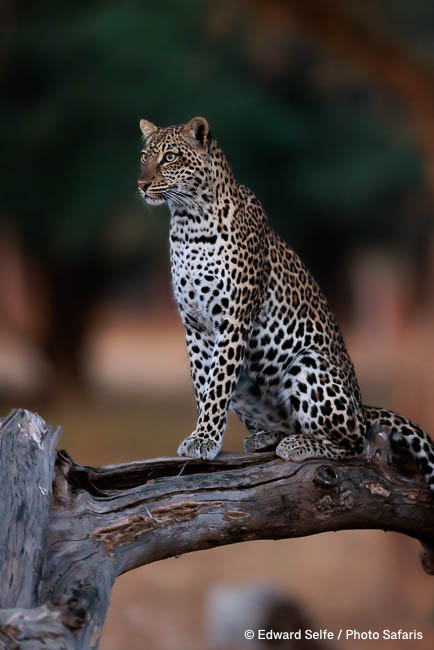
Fading light, but the Canon EOS R5 and its amazing stabilisation system allowed me to get this rested shot at 1/10sec….
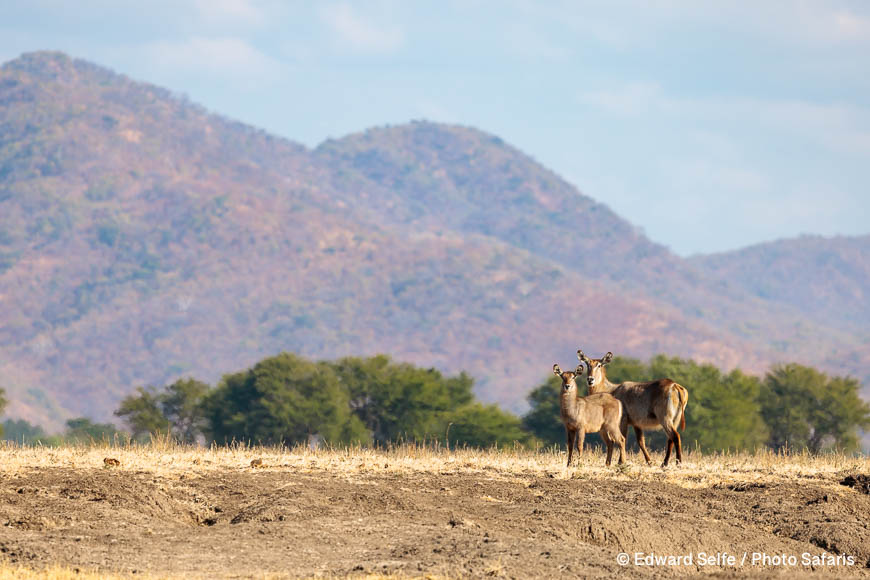
Tracking wild dogs along the Chakwenga plains in the early morning gives chances of beautiful shots of wildlife with the Zambezi escarpment behind.
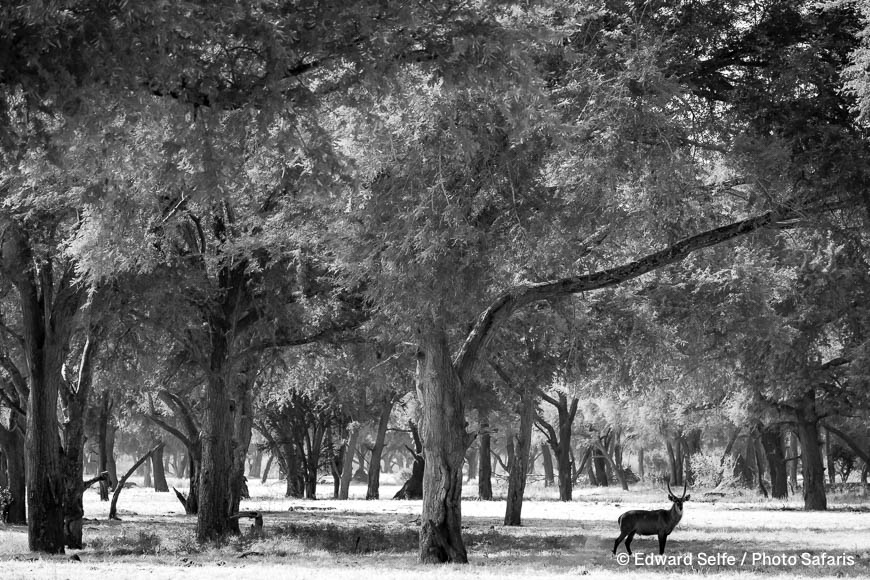
One of the major factors in my decision about which camps to visit is the beauty of the surroundings. In Zambia’s National Parks, there is great game in most areas, so it’s more important to choose based on the canvas against which you want to be able to photograph these species. I love the winterthorn forests of the Lower Zambezi and I’d happily spend all day moving slowly through her trees and lining up special moments.
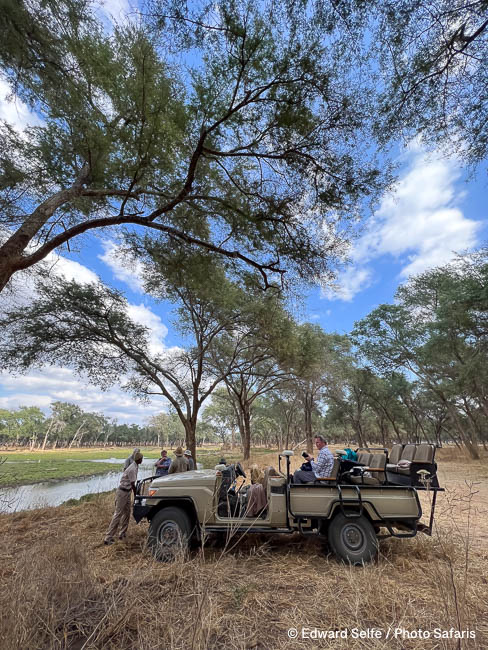
Scenic coffee breaks are easily arranged in this area.
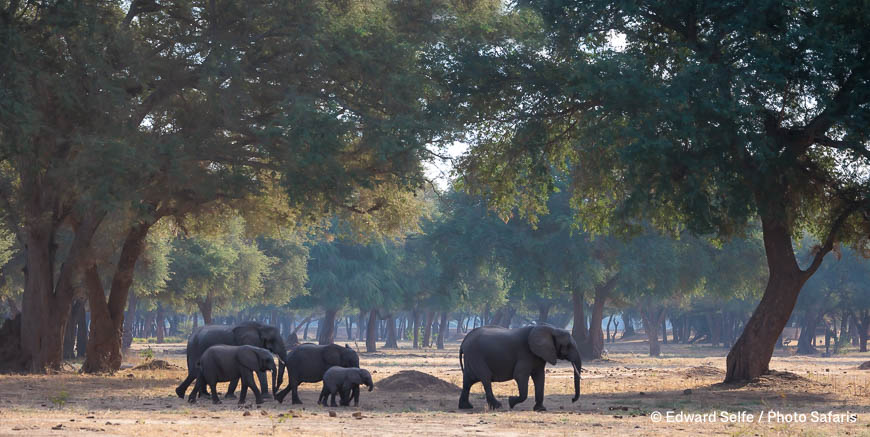
Elephant herds cross the forested floodplain on a daily basis moving between water and foraging areas. Shooting against the light gives a depth to the image which is lost when shooting in the more traditional way.
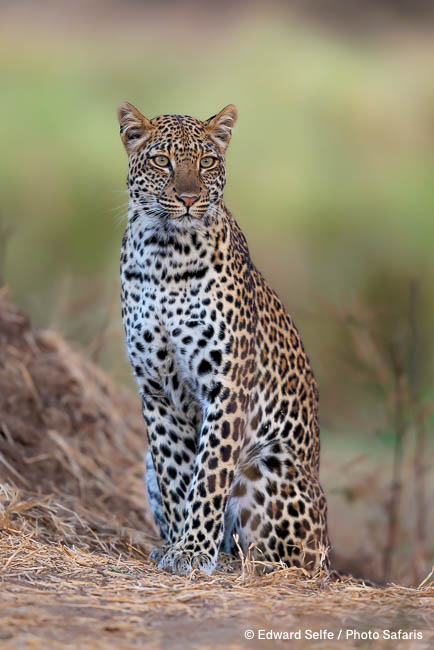
Meeting up with Lady again in the late afternoon and…..
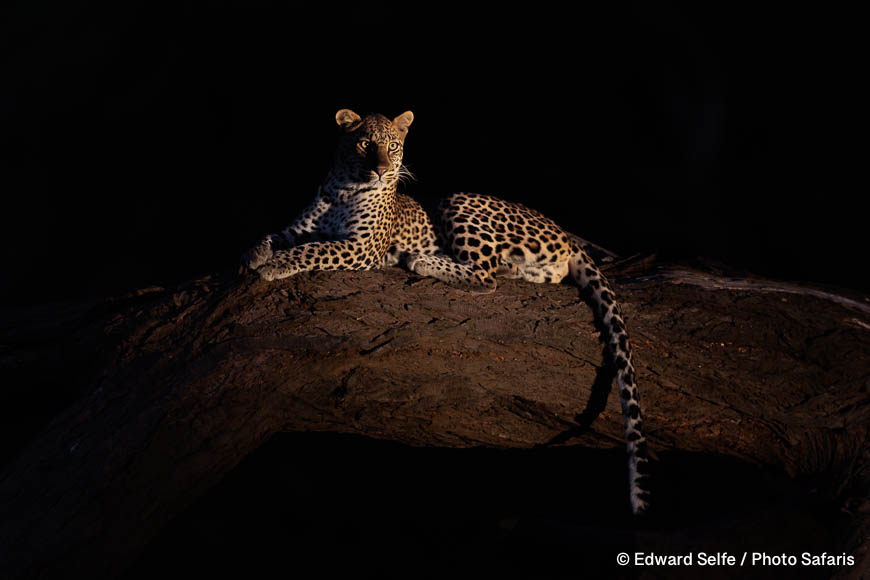
…and side lighting Scar with another vehicle’s spotlight. I tend not to spend much time out after dark since we are so fortunate to see the big predators by day, but occasional spotlighting in a situation like this gives unique images.
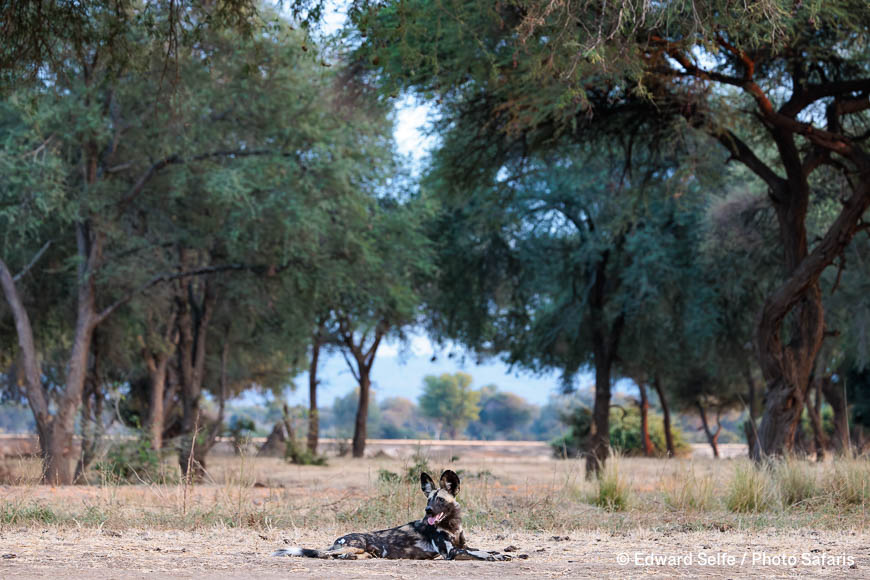
Early the next day, the wild dogs were hunting in the forest. The pack had split so we followed only 4 dogs and they didn’t have huge hunting success.
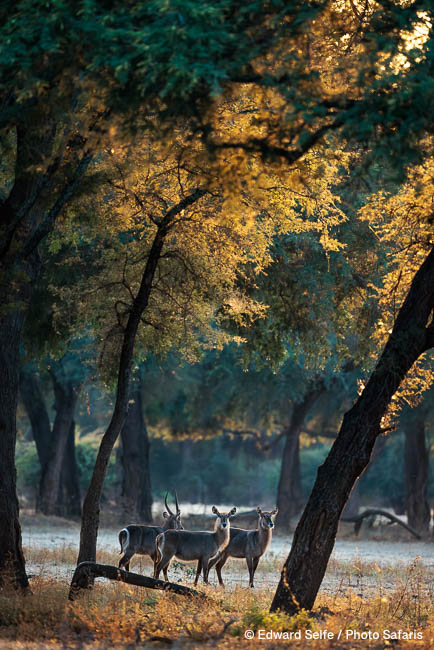
But, as I always do, I looked around to see who was reacting to the presence of the predators and noticed this special scene behind us.
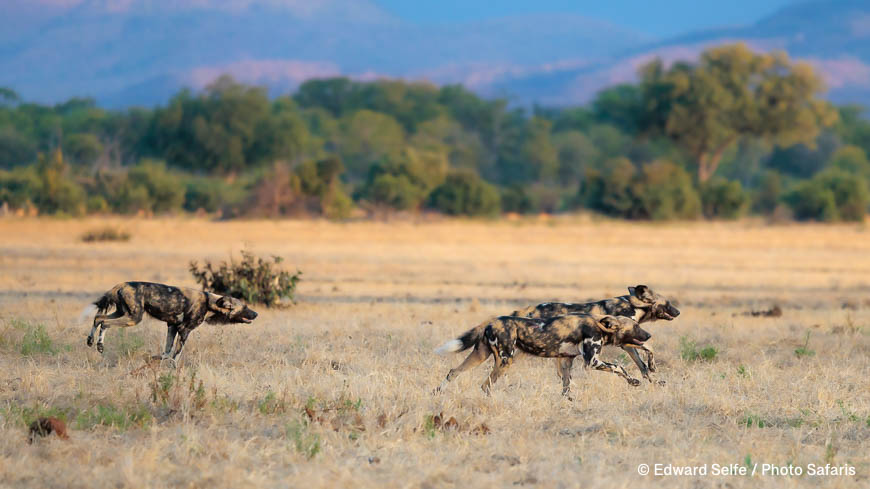
On the hunt….and then gone!
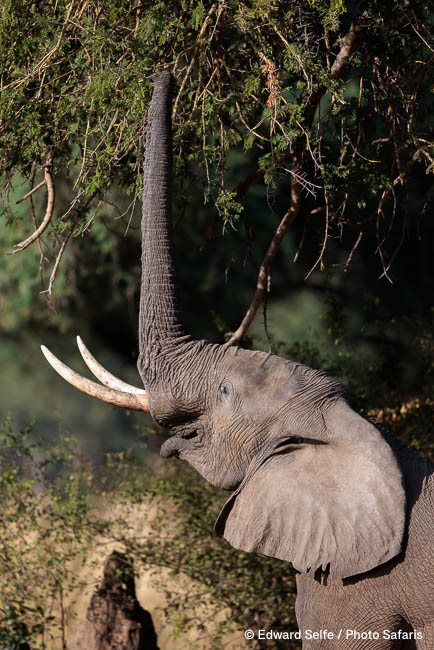
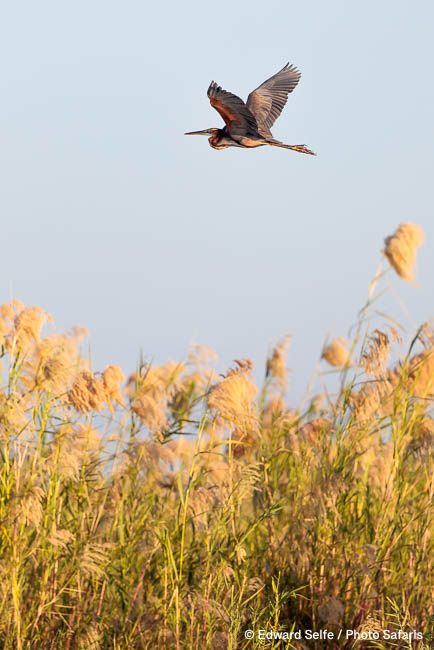
An afternoon boating when it’s hot is always rewarding…..
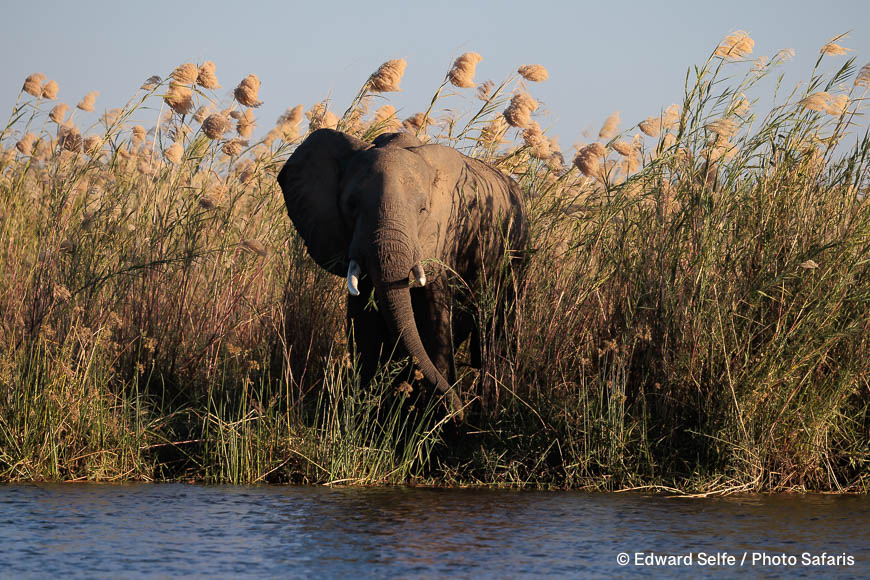
…and nearly always gives us time with elephants either on the islands or in the water.
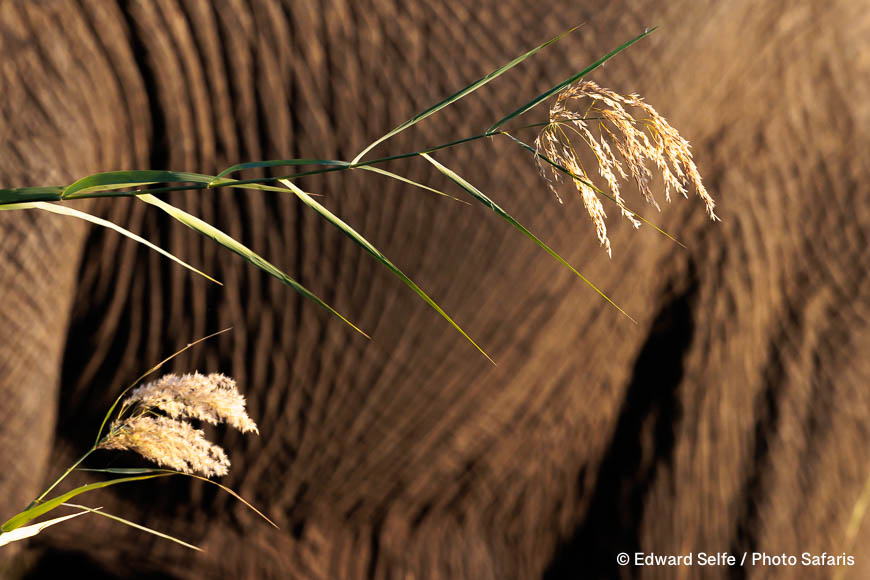
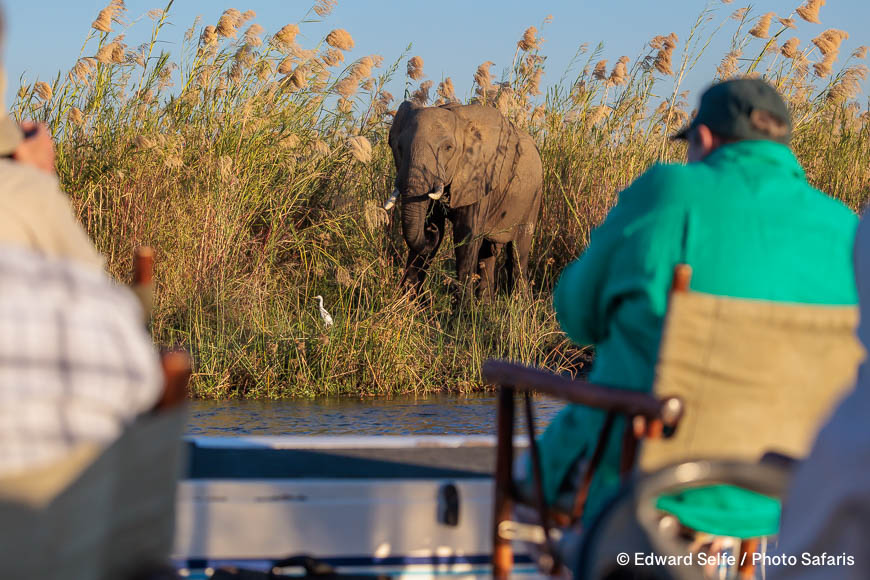
It’s a lovely way to spend a hot afternoon as the breeze on the Zambezi River keeps the temperatures down.
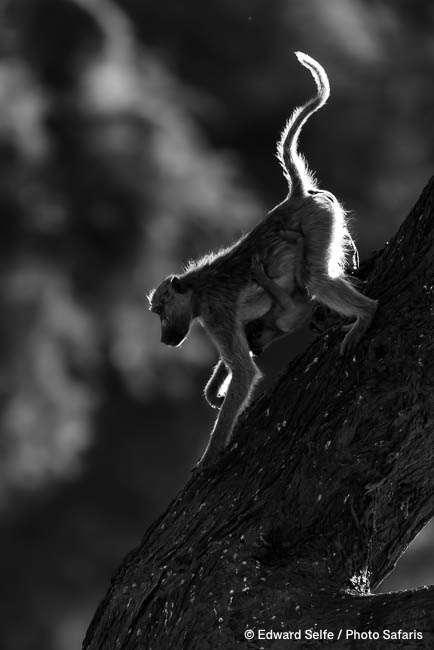
Backlighting and how to do it was another item on our tuition plan, so I worked hard to find situations where the light and the subject worked well. The baboons were perfect, with a rim of light and a dark background, but they didn’t hang around long enough to be a good training aid….!
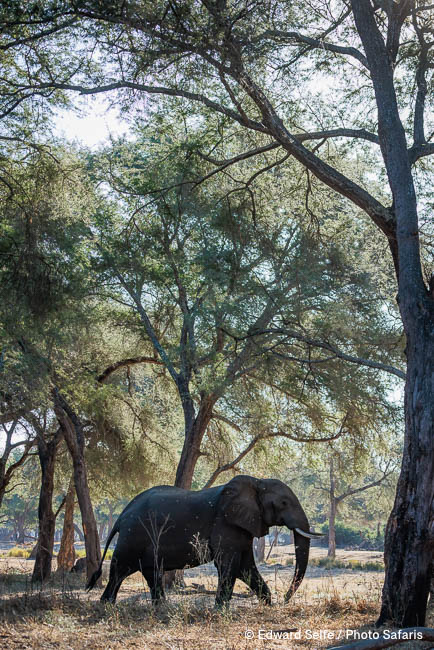
I love the energy and colours in this image.
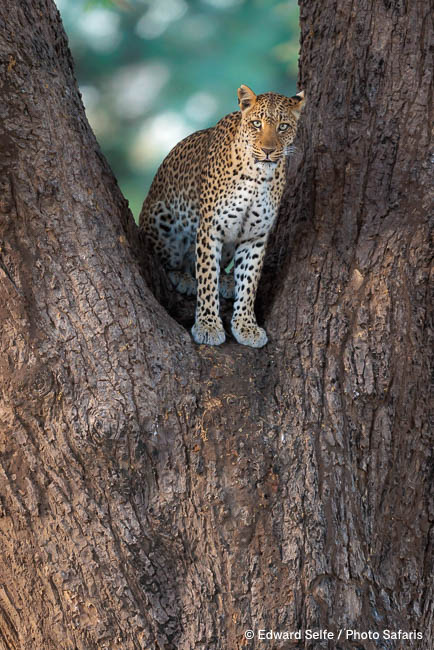
Mai, mother to Lady and Scar gave us a showing in the late afternoon, choosing the fork of a massive winterthorn as a vantage point.
This selection of images barely scratches the surface of our experience in Lower Zambezi so check out the Instagram stories for more. But now it was time to travel to South Luangwa for 4 nights at Lion Camp in the north of the park, one of my favourite go-to areas for reliable excellent sightings.
:Lion Camp, South Luangwa National Park
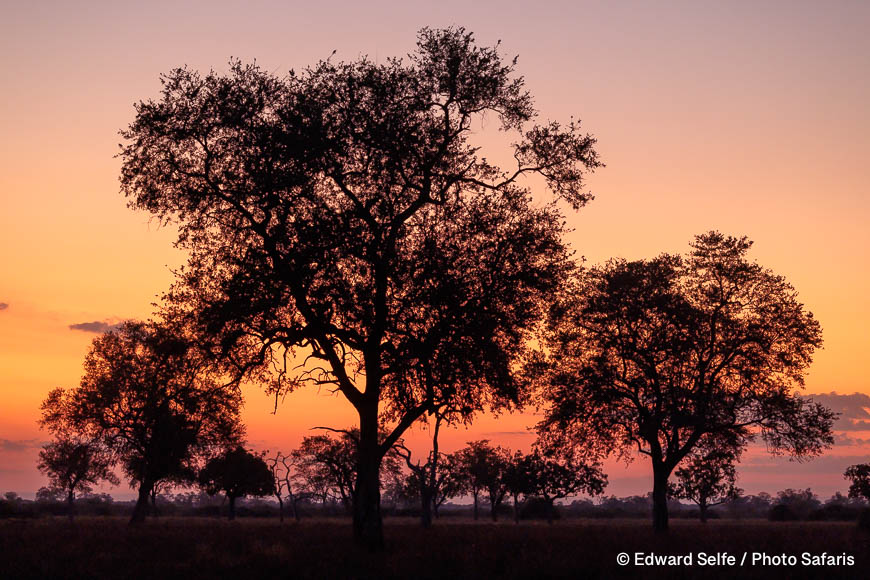
After missing out on lions in Lower Zambezi, I made them my priority in South Luangwa, spending the first afternoon in search of a female who has small cubs. Sadly it didn’t work out and we were left with a lovely sunset but no lions…..
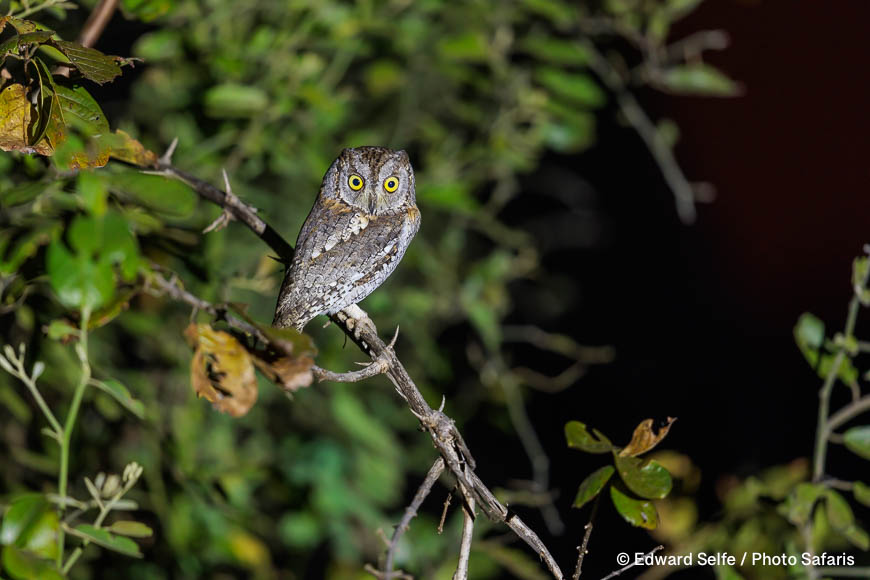
Perhaps my closest African Scops Owl encounter to date!
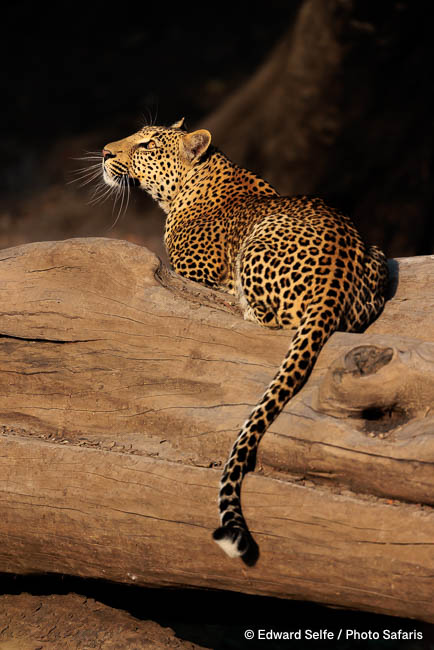
The following morning was spectacular; Chiphadzuwa’s cubs, Chisomo & Taonga, were together in an ebony grove. Taonga was hunting baboons in the trees above and Chisomo was sunning himself on a fallen tree below. We waited a long time for him to turn his head and give us this fabulous moment.
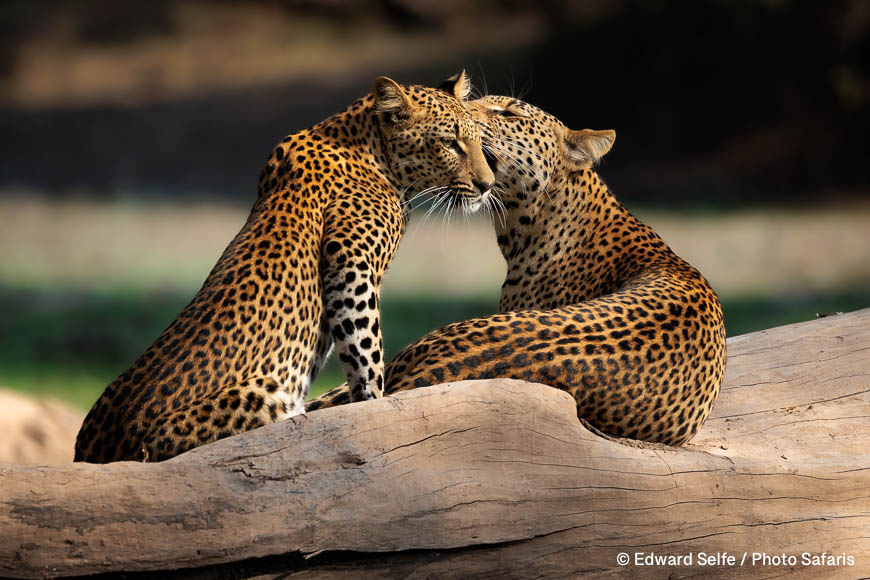
Eventually she descended and they greeted each other. We were ready in the best position for the shot.
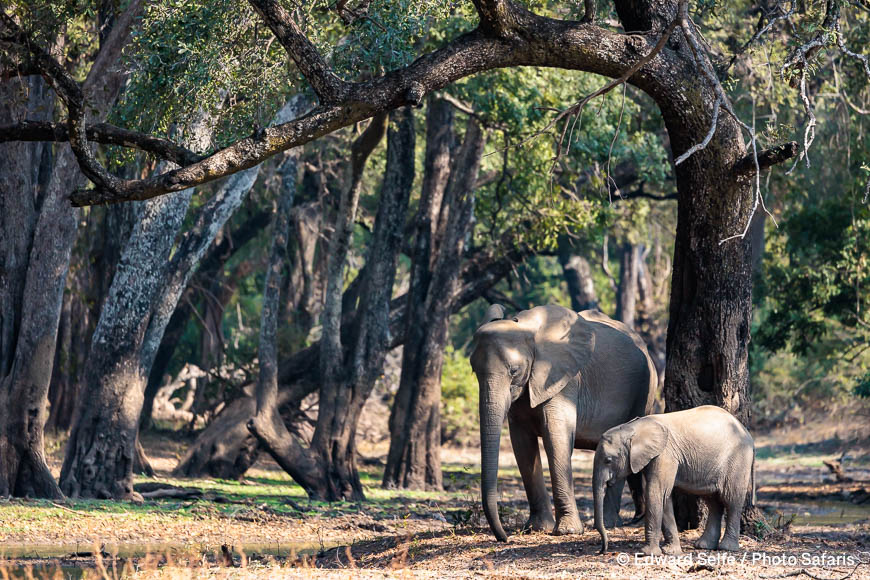
Elephants were feeding in the grove nearby. Getting a clear background in a shot like this is important; the elephants’ shapes should ideally be distinct from the trees behind, or at least separated by tone or colour.
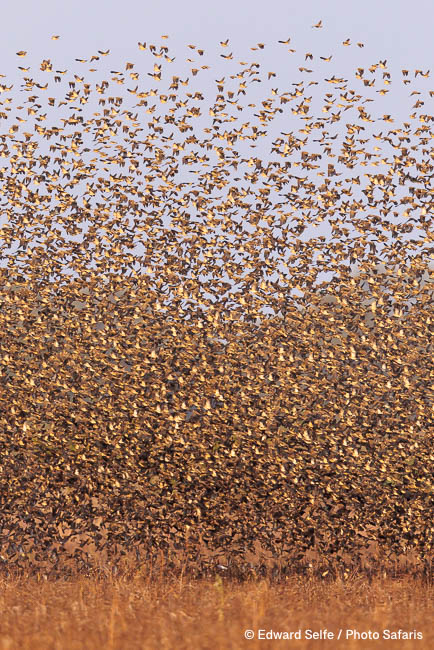
The red-billed quelea flocks on the plains were spectacular and some of the largest I’ve ever seen. This is merely a 3% section of the whole….
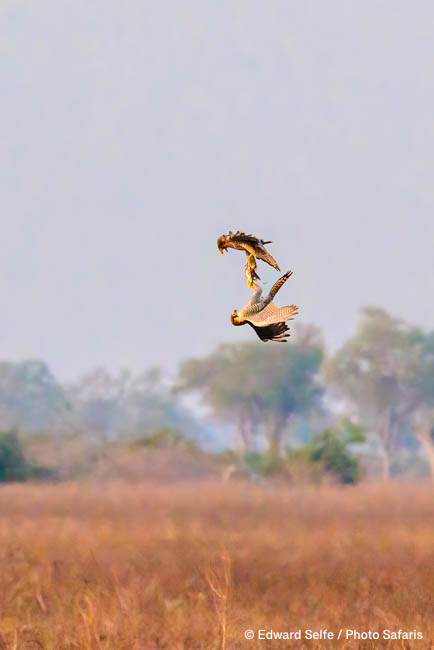
….and they were attended by falcons and goshawks looking to feast. This red-necked falcon made a gift of its catch to its sub-adult offspring in flight…
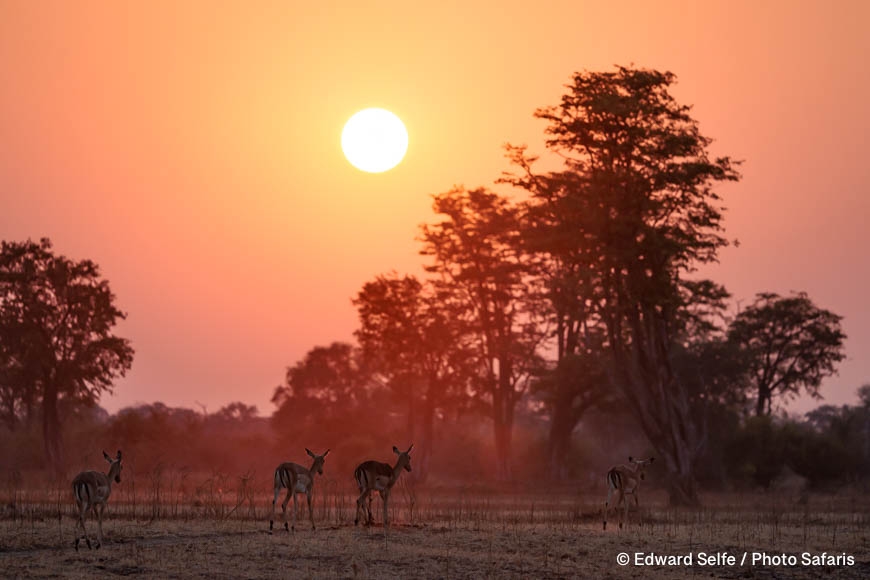
Dusty feet at sunset.
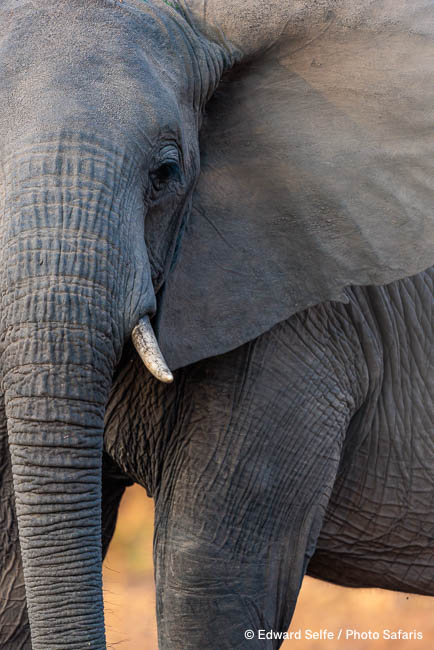
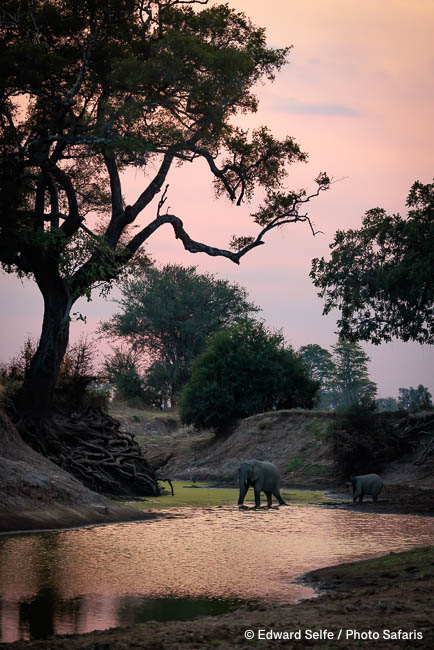
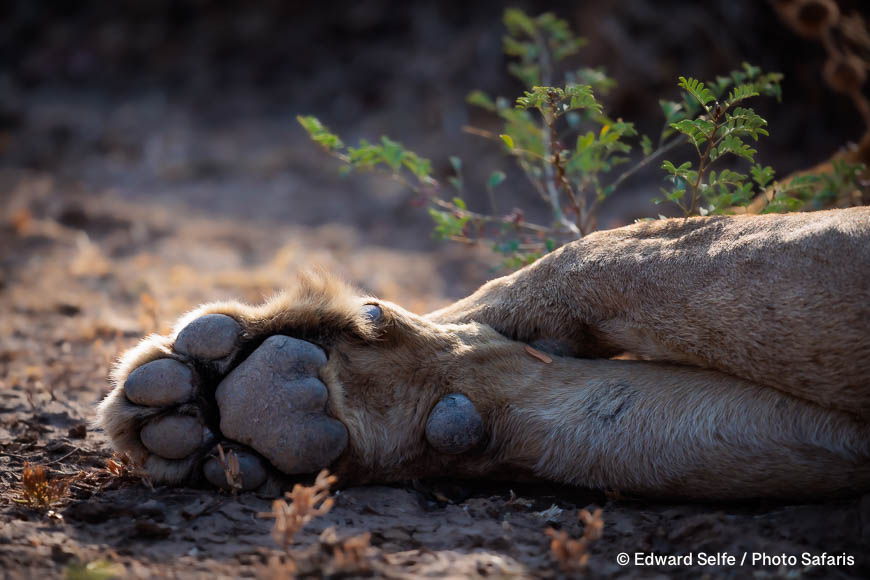
Lions at last…though these males were pretty sleepy when we found them! We hoped that the females and the youngsters would appear at some stage, but otherwise I knew that Busanga Plains would yield great lion sightings. I always prefer to celebrate what we have, rather than wish for sightings that are not to be found.
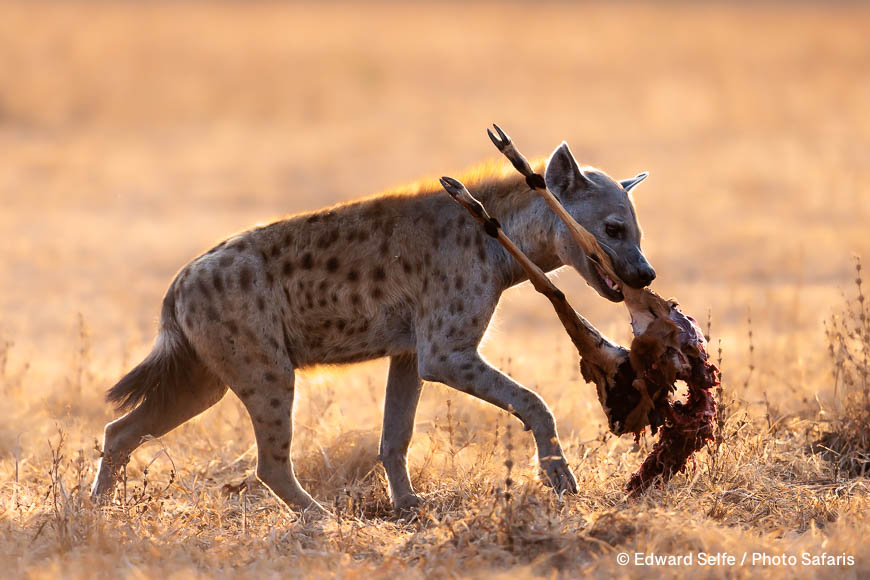
Not that we had anything to complain about; this hyaena was running away from a tree where Chiphadzuwa and her two cubs were all feeding on the carcass (until Chisomo dropped it!)
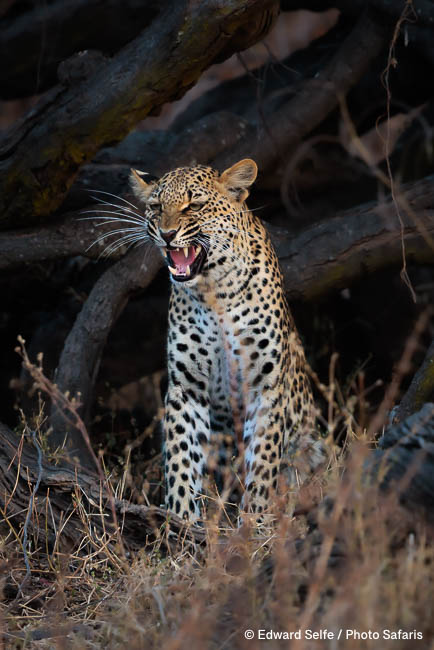
Taonga was not impressed and tried to stalk the hyaena and surprise it into relinquishing the prize.
Our final morning in South Luangwa gave us lions, but it was the Hollywood females with extremely full bellies. During 45 minutes with them, not a single one even lifted her head! Nevertheless, I pinned my hopes on Busanga for lion sightings…
:Wildeness Safaris’ Busanga Bush Camp, Kafue National Park
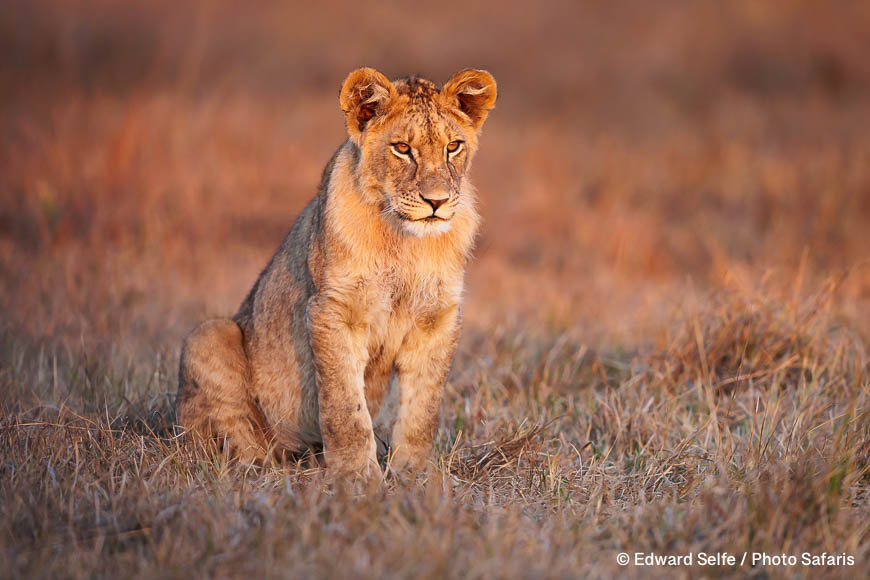
Not even 1 hour after leaving the small aircraft that we took to get to Busanga Plains in Kafue National Park, guide Isaac Kalio located a lioness called Princess with her mother Machine and their 6 cubs. This shot was taken with my camera lowered over the side of the truck as the last light of day saturated this young male while he glowered at baboons barking nearby.
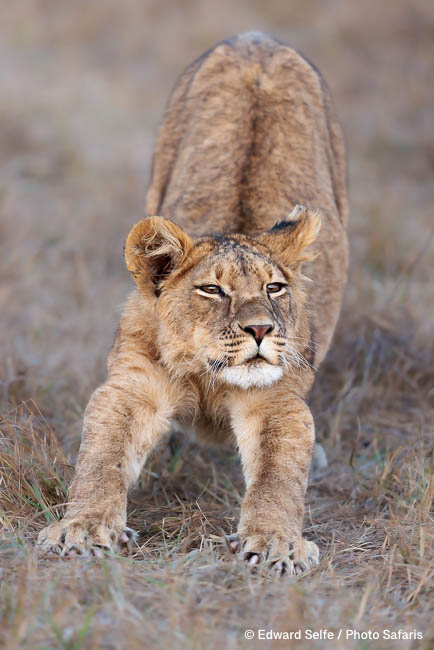
Even though the light was ‘gone’, we stayed with the pride, keen to fill the lion-shaped void in our sightings record. The youngsters roused and played a little….
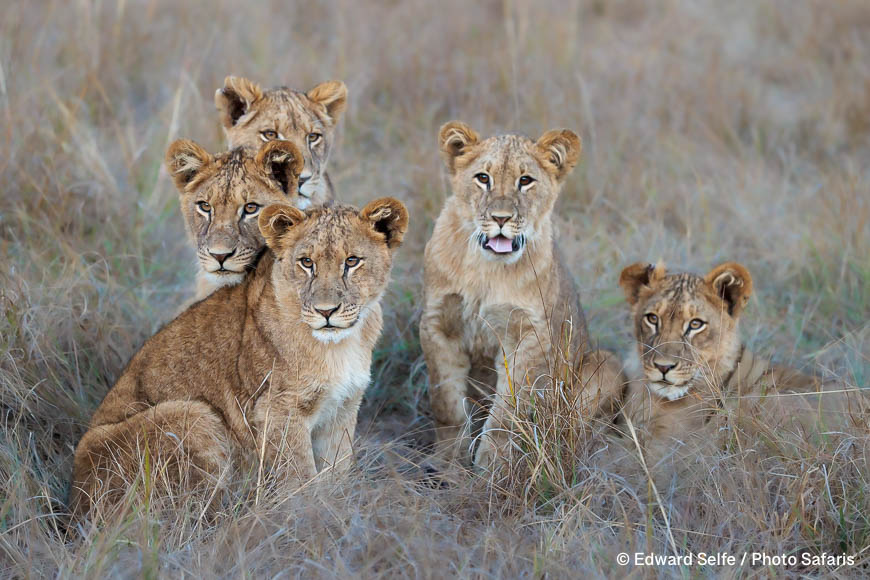
..and then settled in a beautiful pile up.
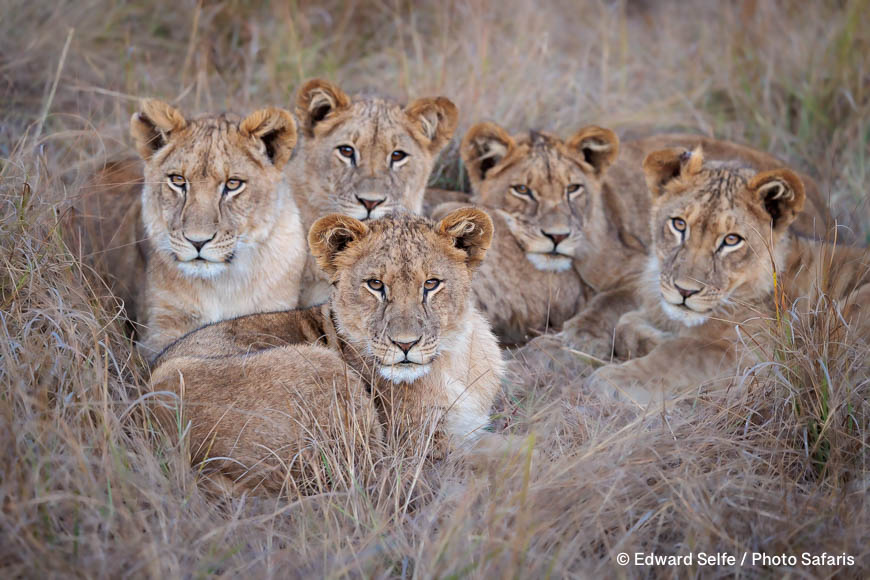
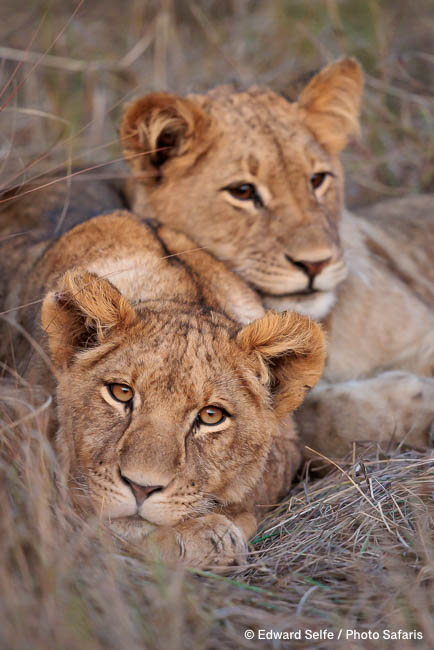
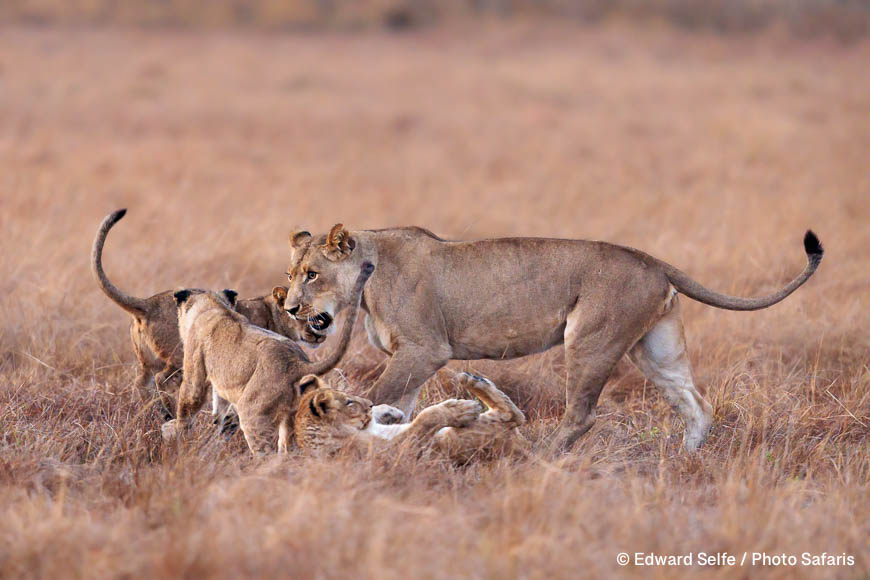
Early the next morning Princess had moved her cubs even closer to camp, and we could hear her rasping calls while we had our porridge in the dark round the fire…
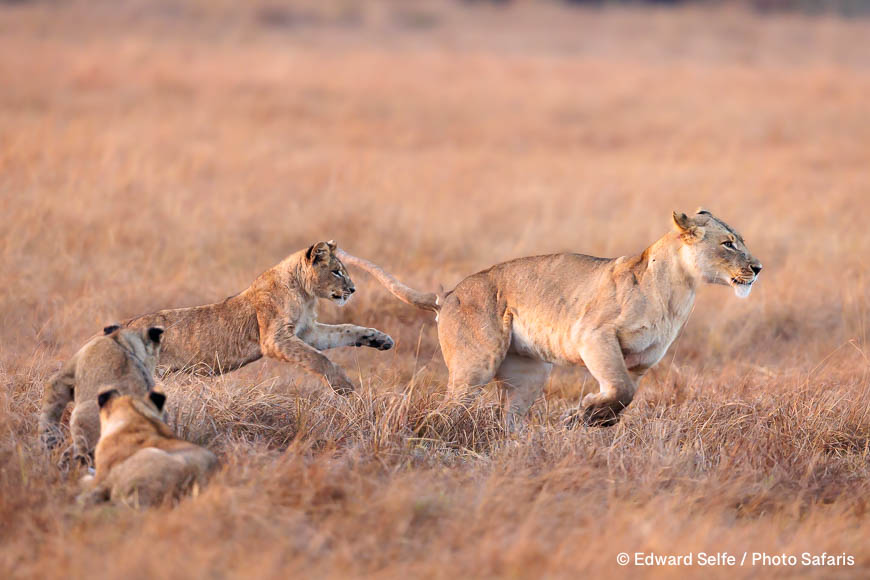
She played in the soft pre-sunrise light, but sadly the real action did not continue after sunrise when the stronger light would have helped us to lower ISOs and raise shutter speeds.
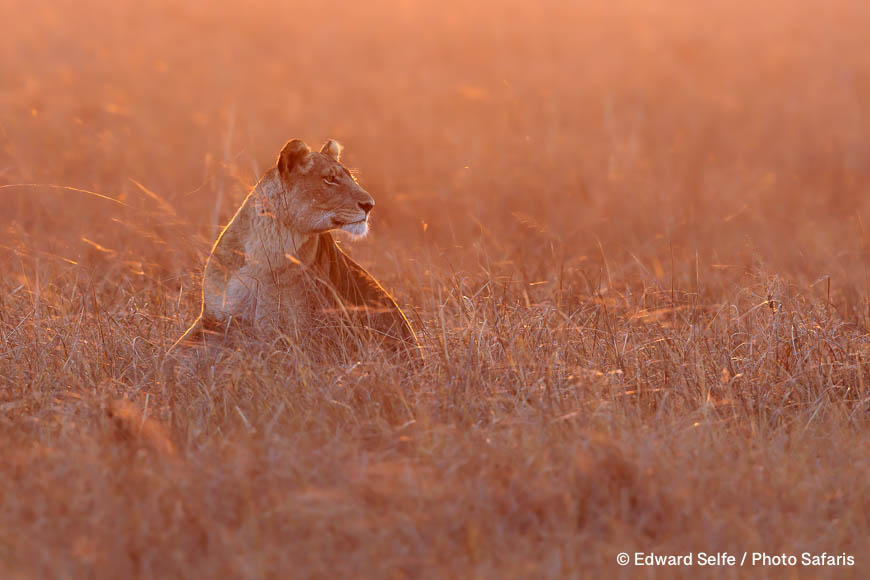
The Machine, carrying an injury on her front right shoulder, roused from the grass and was caught in the rim-light of sunrise….
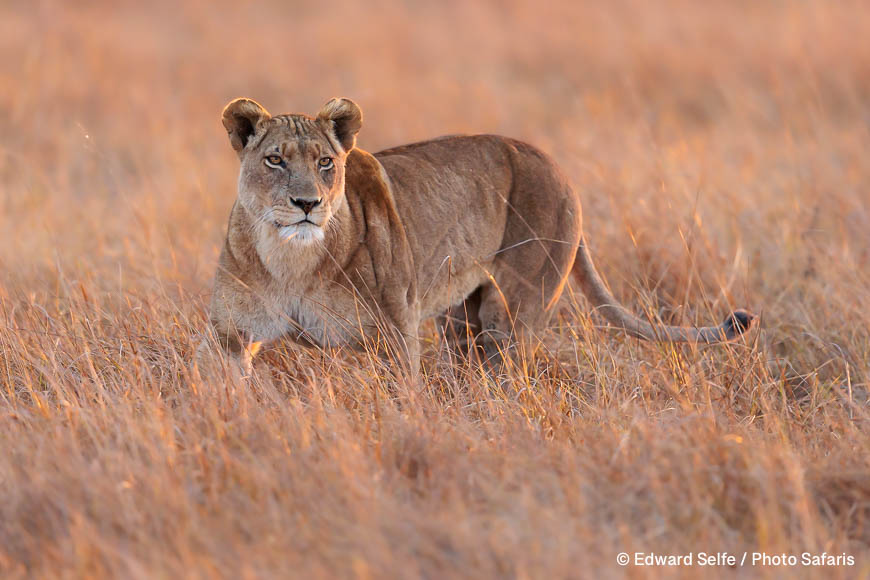
..before approaching us and showing off the massive shoulders that is characteristic of the Busanga lion lineage.
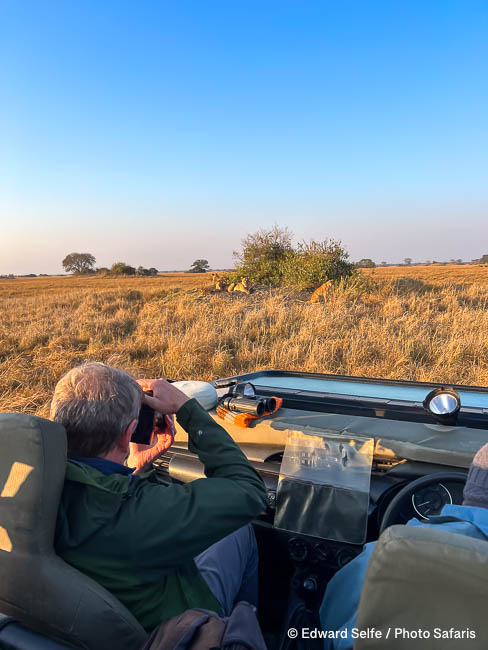
The family settled round a small mound, while the females took up position hidden in the grass waiting for unsuspecting antelope to approach.
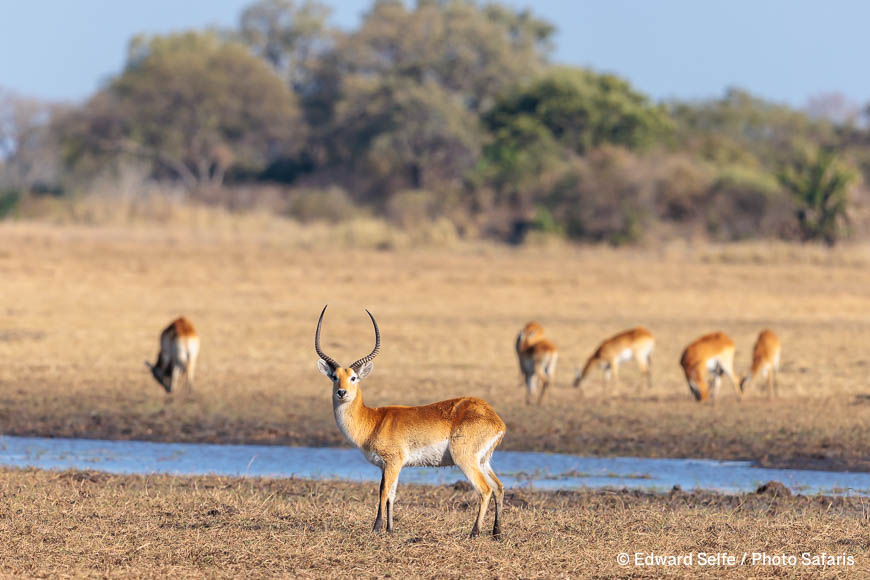
Red-lechwe (shown here) and puku are the most common antelope on the plains. They are both happily aquatic, taking to the water when they need to. During the rains, this area is inundated with water so they must move from island to island in search of food, requiring fording large water bodies and swimming at times.
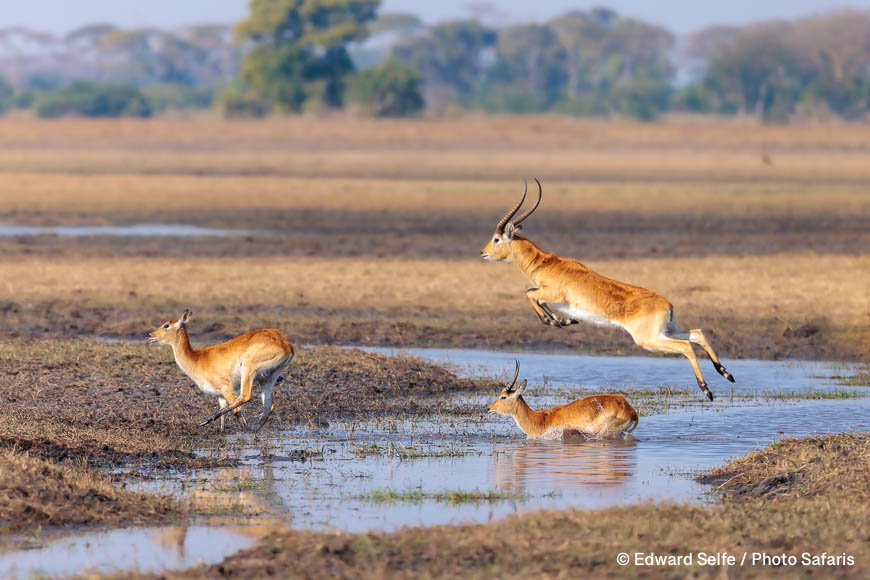
When they can jump a channel they will do so, but they are also happy to splash through.
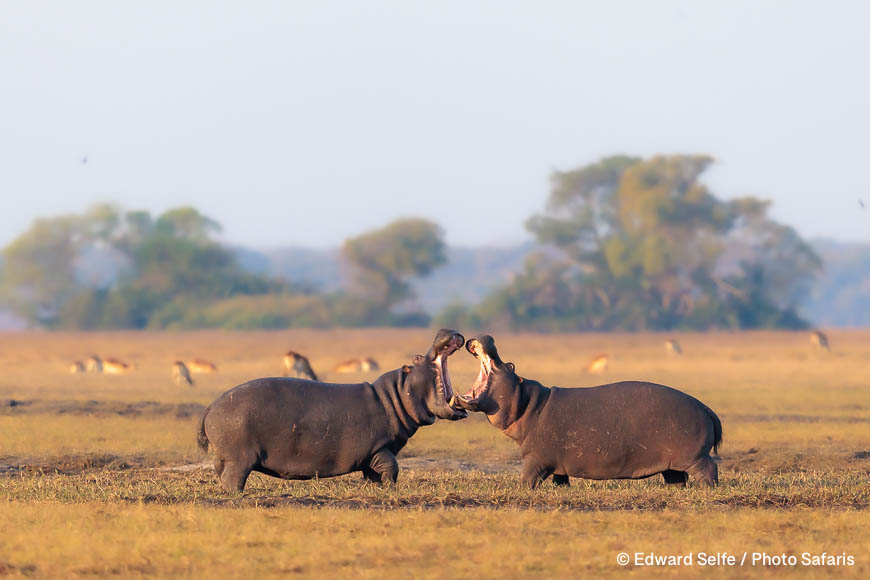
While photographing crowned cranes, we spotted two bull hippos sparring in the distance; it appeared to be a jousting match and nothing serious, but these bouts sometimes escalate as I have seen here before, so we went to have a look. It lasted a long time but never escalated beyond a few moments of clattering tusks and heavy shoving.
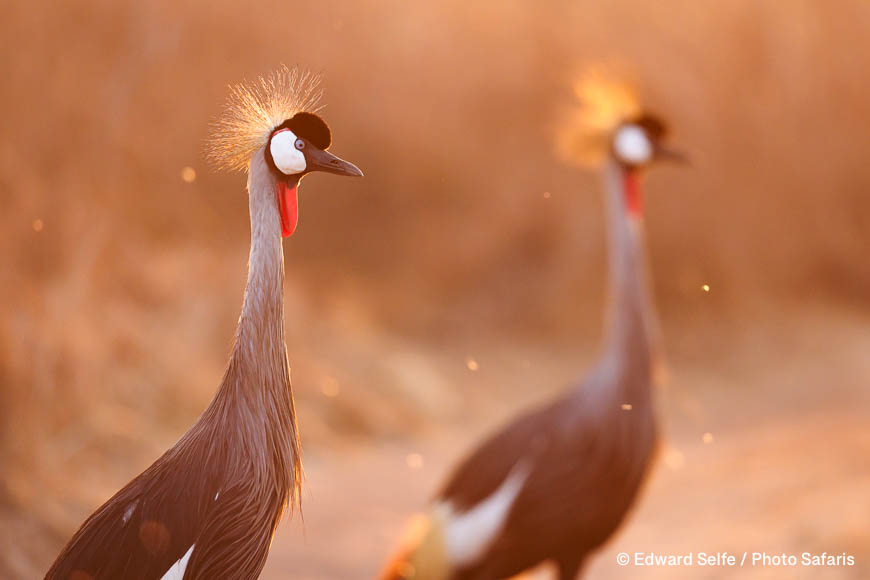
The cranes were superb – relatively tame and tolerant of us approaching them closely in the evening light.
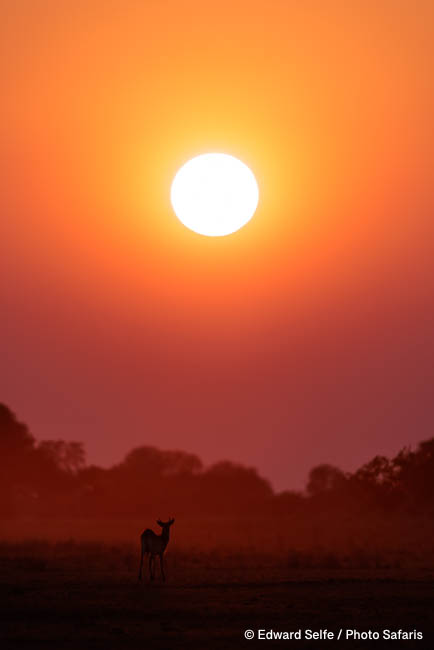
Making use of the last moments of daylight for something special.
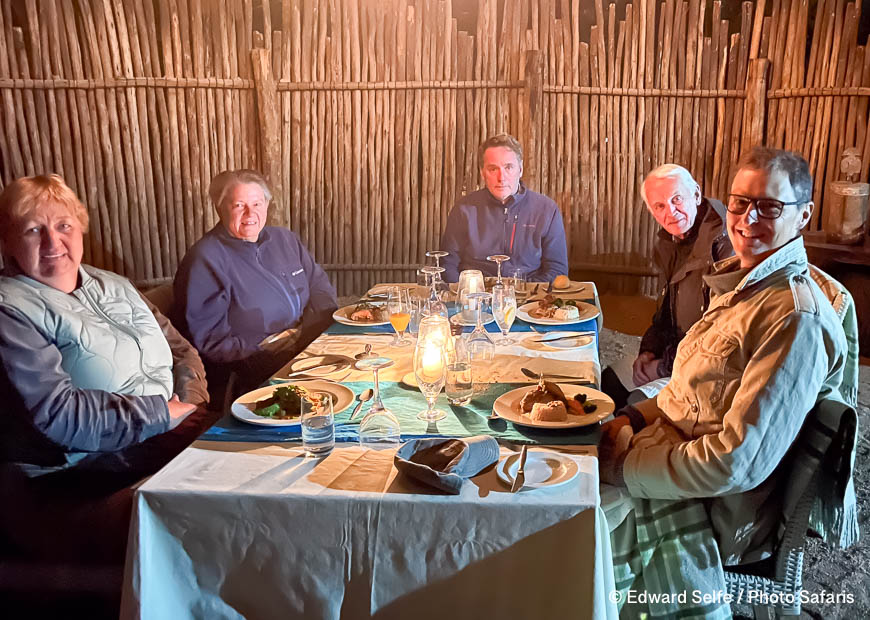
Private dinner back in camps for our group. We had use of the whole camp which gave me freedom to work with the team to maximise the guests’ experience.
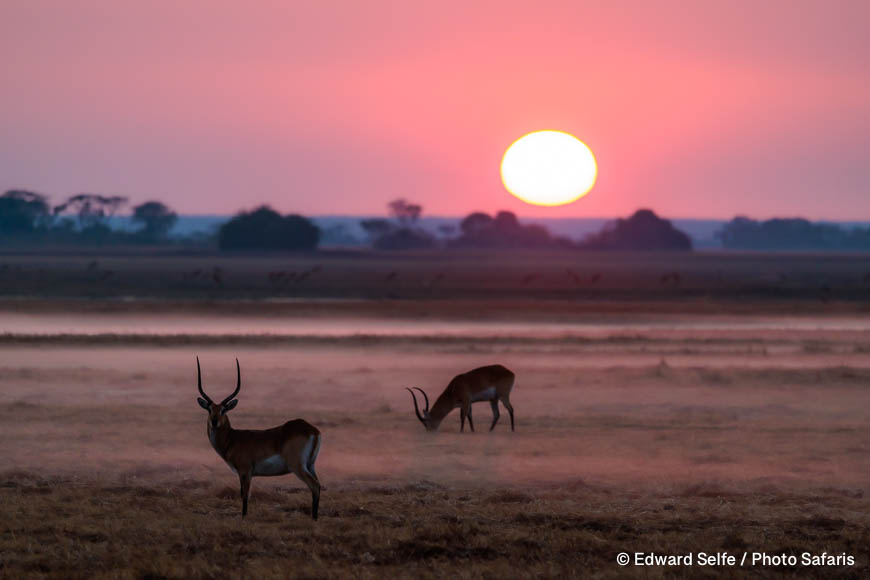
Depsite the dry conditions, we had noticed some fog developing north of camp in the mornings. It’s one of the Busanga’s best attractions, so we planned to arrive there early the next day and wait. We were lucky that the conditions were right and the lechwe made great subjects.
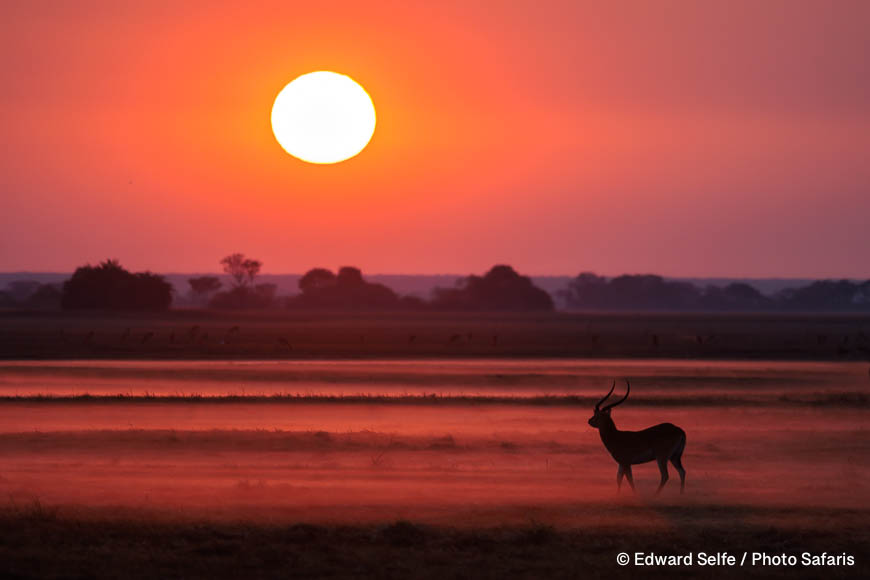
Can only be Busanga Plains!
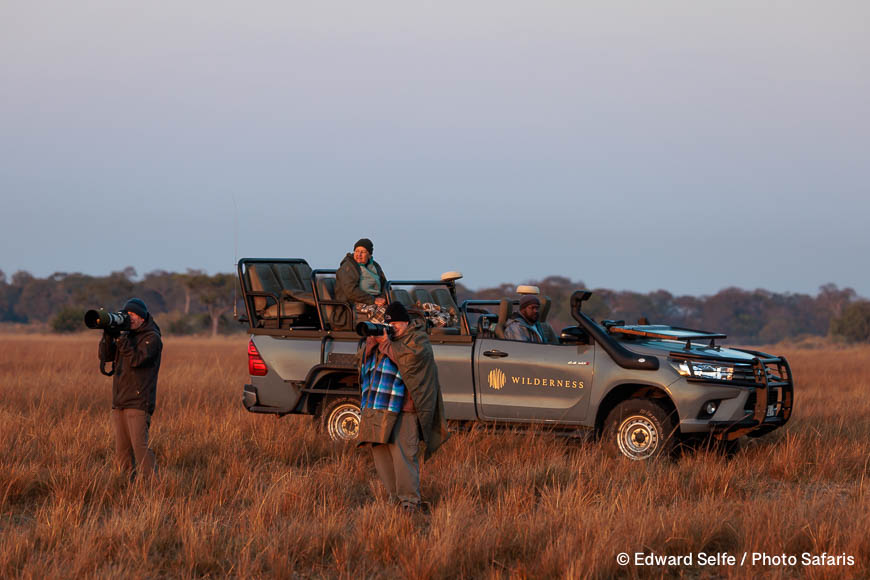
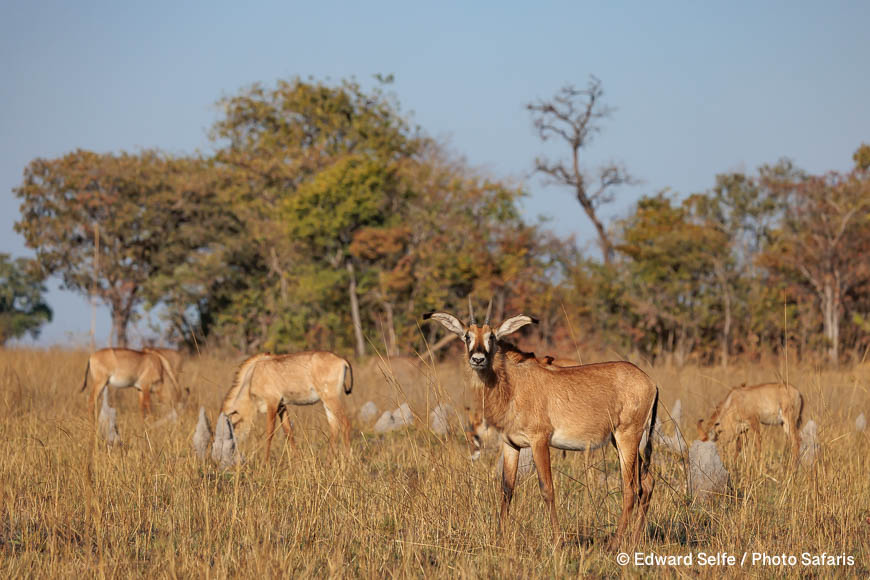
We explored closer to the treeline in search of roan, wildebeest, oribi, zebra, cheetah and sable in the afternoon. We were lucky on roan, wildebeest and oribi, but the rest eluded us.
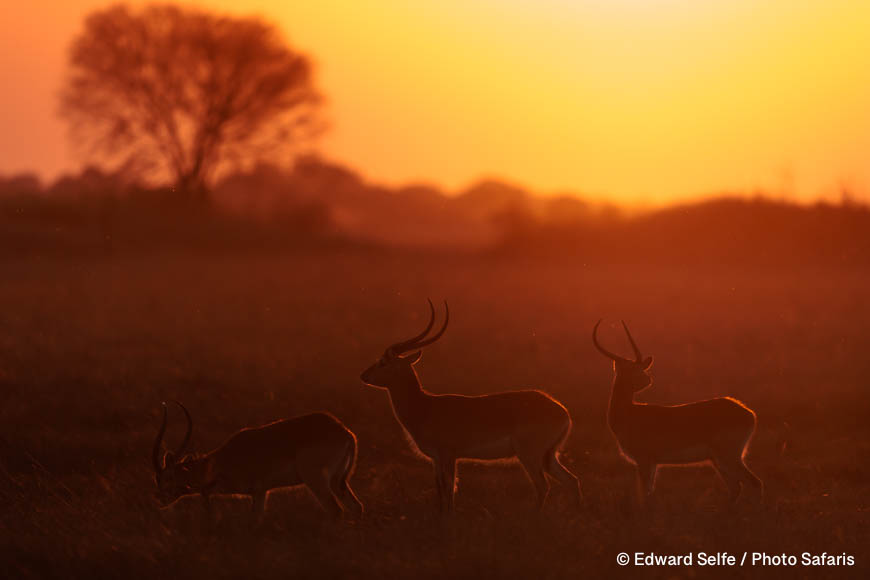
Backlit lechwe at sunset.
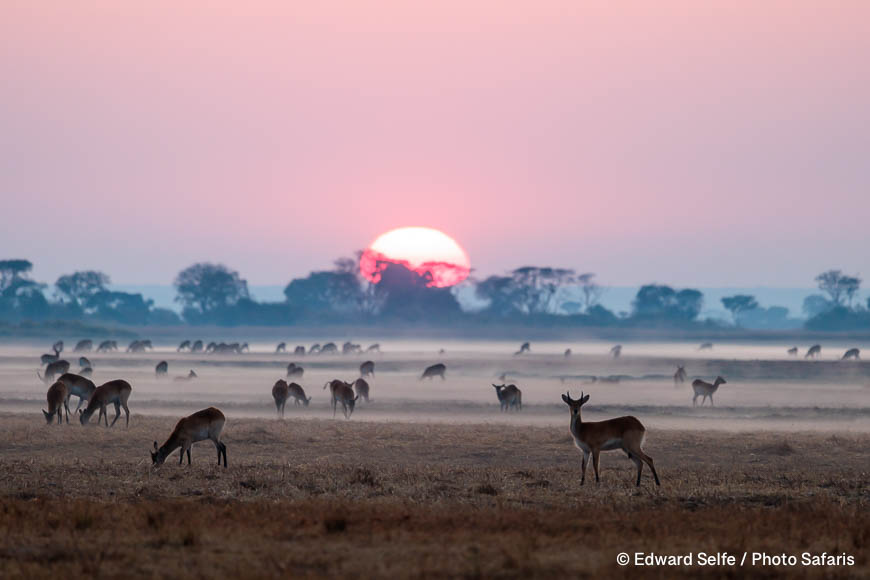
Back towards the misty floodplains the next day….
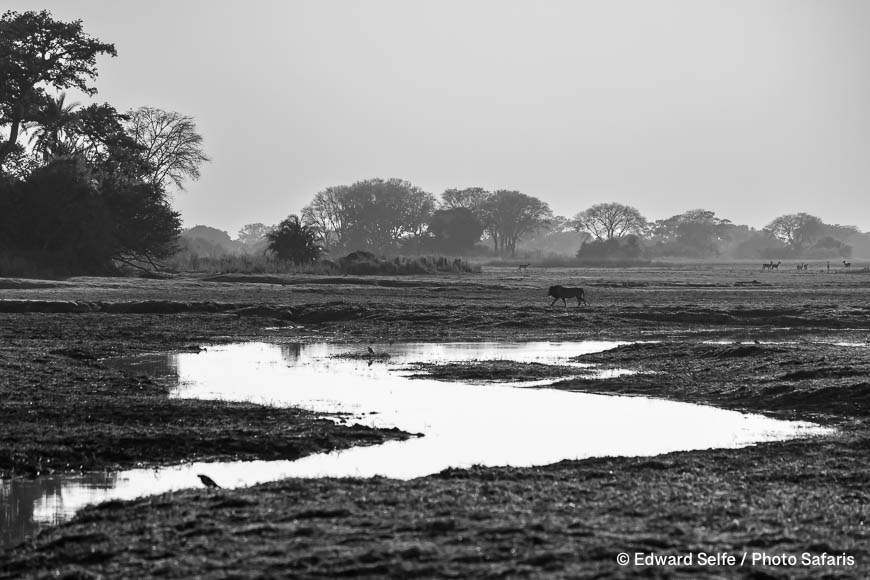
…and then a lion-heavy morning. The General was spotted crossing a channel and moving to an area we sadly couldn’t access….
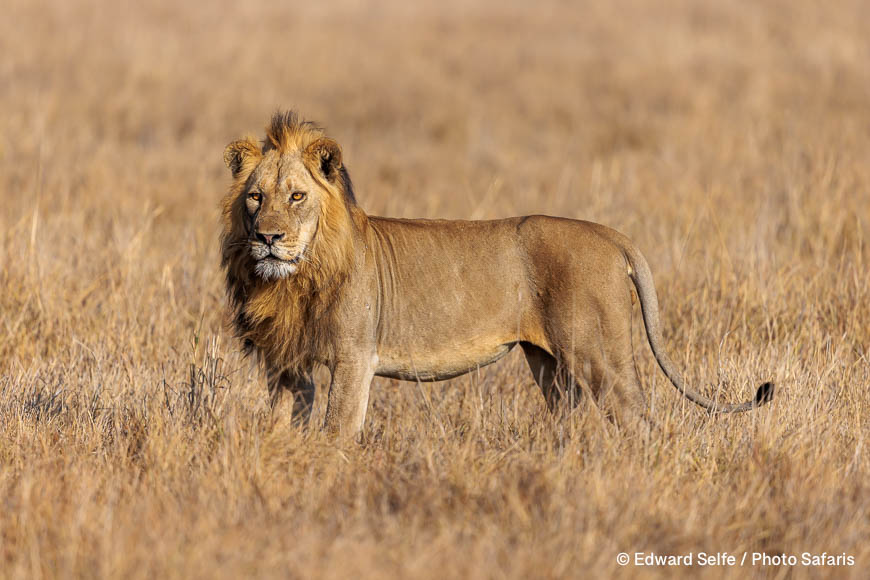
..one of the young males in the area put in an appearance and caused Mohawk (below) to put on….
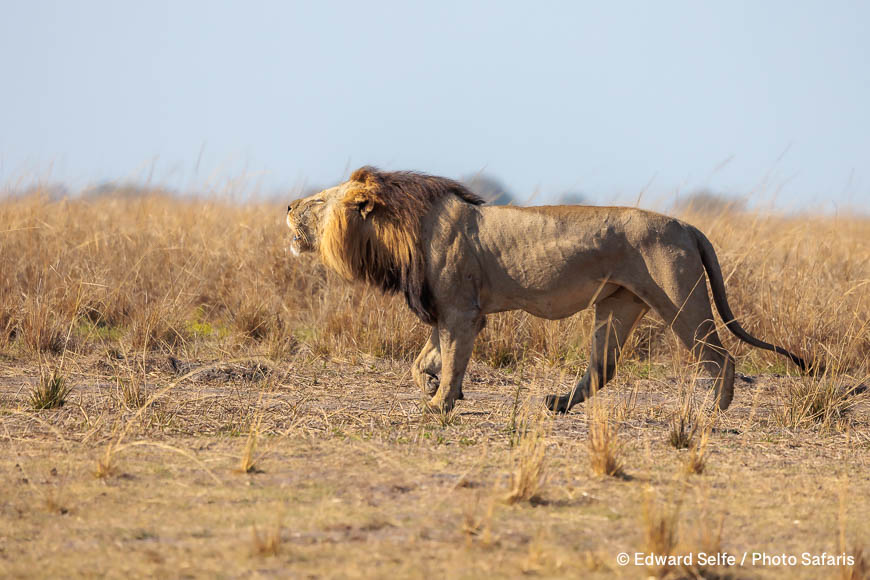
…a show of territorial displays including extended calling, scent marking and searching his territory for the youngster. Great to watch.
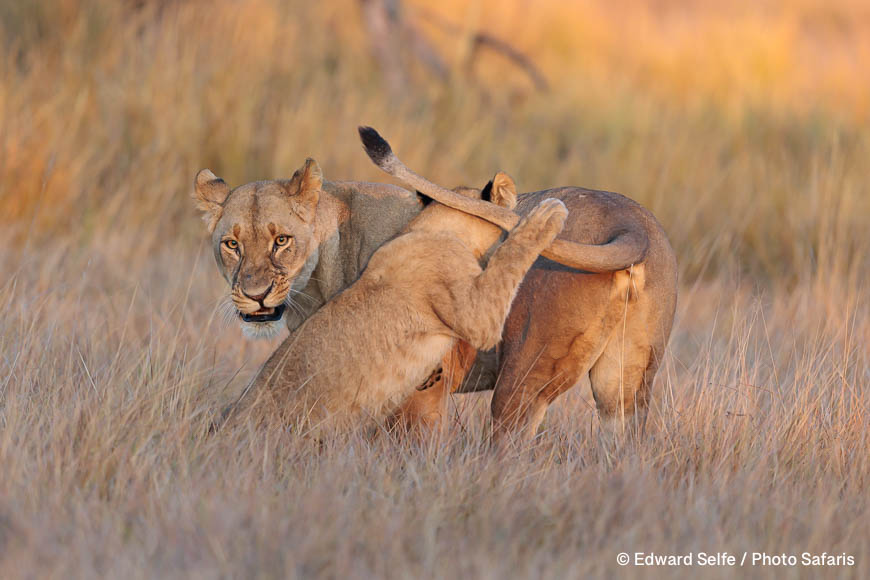
We wondered what could top the wonderful lion sightings that we had enjoyed throughout Busanga Plains. On our last morning, we caught up with Nala, who has 4 cubs herself and largely moves alone, hunting and feeding the young independently. She gave us a wonderful morning of entertainment….
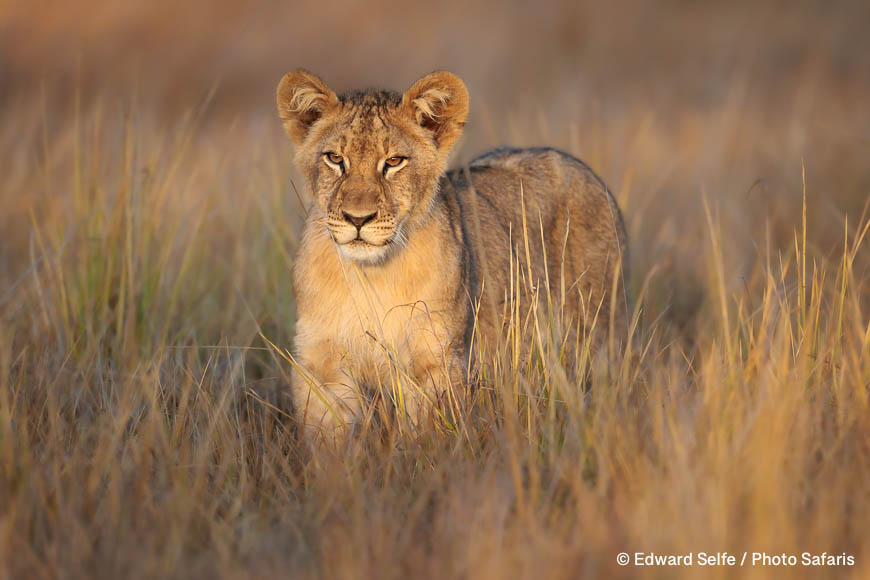
…and amazing light. It’s exciting that the prides (which are usually just 2 or 3 lionesses due to the abundance of small prey) have as many as 16 cubs between them! It’s a really positive sign for the future of the area’s apex predator.
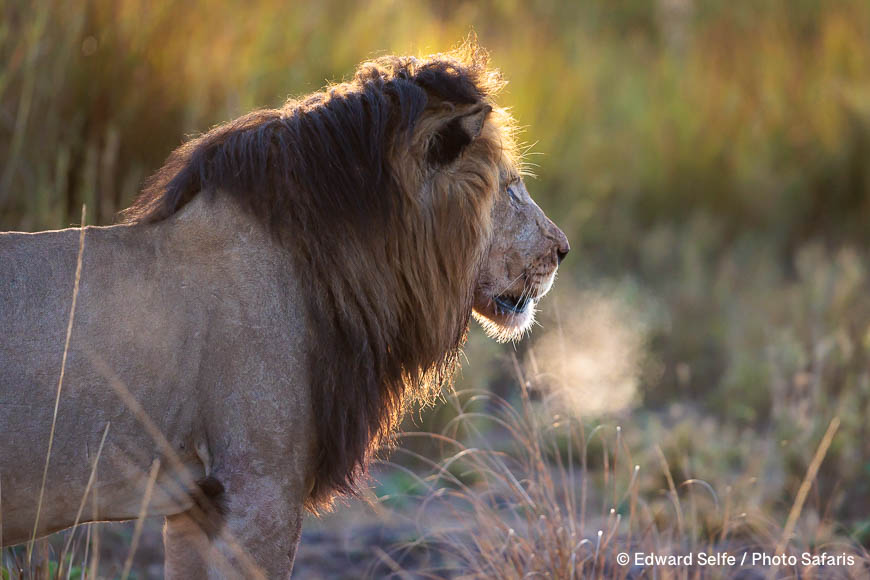
We also – finally – had a chance to see The General at close quarters. With a large and dark mane, he’s a spectacular male and clearly dominant in the area currently. Some challenges have been launched but he’s held his ground for the last 18 months.
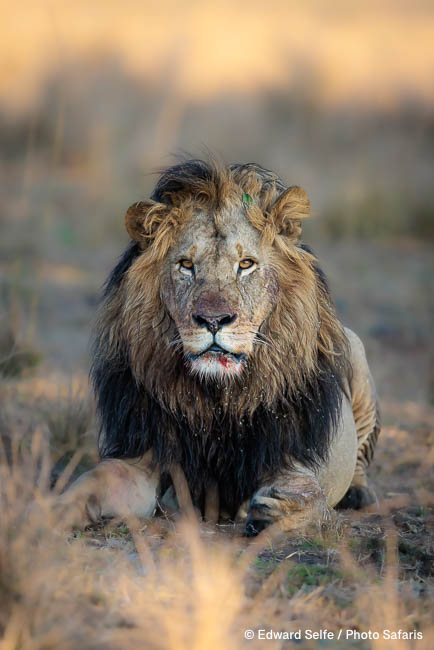
He had a full belly and some flesh still stuck to his lip and, while we watched, we could see vultures landing in the direction where he had come from, suggesting he’d left his own leftovers not far away.
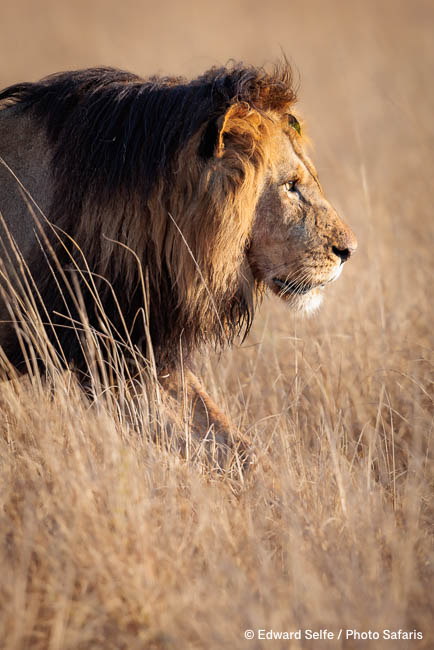
This is the definition of Busanga Plains for me; a large male lion in excellent light, crossing a plain of long, soft grasses. Long may that continue to be the case in Zambia’s Kafue National Park.
Thank you for your interest in my trips and for reading all the way to the end. If I can assist with planning a trip, whether with me guiding or not, please get in touch as I am always ready to share what I have learned about this beautiful country and its neighbours.


